We meet Jalmari Helander at lunchtime, in a restaurant not too far from Locarno’s Piazza Grande, where his film will be screened in a few hours’ time. Our guardian angel and local press agent for the film, Frauke Greiner, leads us there and pleasantly chats with us while the director finishes his well deserved dessert. We sit down with him at a corner table and, among surrounding noises of people still clanking cutlery, we try to scrape his proverbial Finnish reserve.
Beatrice Biggio (BB): We have the pleasure to be able to interview Jalmari Helander, director of Rare Exports, his first feature film, which in this year’s edition of the Locarno Film Festival is going to be screened in Piazza Grande. We saw the film in press screening and we loved it. Not the usual Christmas film, is it?
Jalmari Helander (JH): I suppose it’s not, by usual standards. But it is some kind of a Christmas movie, nonetheless. It is based on Father Christmas as seen in the Finnish tradition, which is surely nothing like the Coca Cola, stereotyped version we’re used to see it portrayed in worldwide. I hate that Father Christmas, it’s nothing like the original tale that every Finnish child learns to know. Father Christmas is the bad guy, in our tradition; he’s the scary monster who punishes children rather than the trademark, red dressed, white bearded granddad who brings presents to children all over the world. It is quite difficult to challenge this marketed idea, but we tried to do it in the film, as well as telling, I hope, a good action story.
BB: In fact, it’s definitely not a children movie. Did you set out to tell a dark fairytale much like Guillermo Del Toro’s Pan’s Labyrinth? What was your original idea and inspiration?
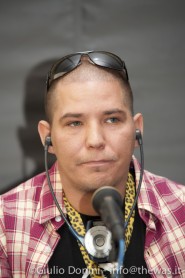
JH: Yes, you could say that was one of the inspirations. I like the way Del Toro uses a fairytale atmosphere while going deep down into people’s fears. But my inspiration was halfway between that and something supernatural, much as it is in a film like, say, Signs. That, coupled with my passion for action movies. It’s something rather difficult to explain though, because there’s so much more to it. I’m so fascinated by the way children have to imagine things, and sometimes it can be hard to figure out how scary some of the ideas that are in a child’s mind can be. And how revolutionary, too, if their imagination is let loose and they’re allowed to act it out.
BB: I’ve heard many people defined yours as a very successful genre movie. I didn’t think it’s so much of a genre film, but rather a good story about childhood, dreams, hope, imagination. Do you think that’s the underlining character of the film, to show how being a child is much more imaginative than being an adult?
JH: It’s exactly that. That’s because I like children’s ideas, their ways of doing things. I like the idea that somebody could be a hero while other people believe him to be something completely different, somebody else.
BB: I also noticed that women in the film are totally absent, and there’s no indulging on the story of this child’s mother; you don’t spend time asking yourself what’s happened to her, or the fact that this child lives alone with his father and whether there’s a problem with that. I really appreciated that, I think you just lightly touched the subject, and the story is allowed to distance itself from the tale of a family issue, concentrating on the personal world of imagination and vitality of this child, and I think you did it very well. Did you actually have this in mind all along, or is it something that only came about while shooting?
JH: It seems that you have a very clear idea of what I tried to do. I actually had the mother in the script at some stage, but I eventually realised that it would have been really difficult to tell the story if there had been a mother, because then Pietari’s father would need to explain everything to her… you see, man’s idea is often that certain things would never be possible if women are involved, especially in this kind of “awkward” situations…
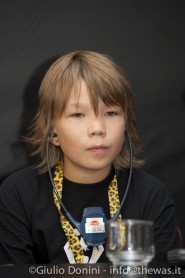 BB: How difficult was it to work with little Onni Tommila, who plays Pietari, the film’s main character? His father in the film is also his real father, did you first cast him, and then realized his son was apt for the role, or did you do castings with other kids as well?
BB: How difficult was it to work with little Onni Tommila, who plays Pietari, the film’s main character? His father in the film is also his real father, did you first cast him, and then realized his son was apt for the role, or did you do castings with other kids as well?
JH: I was happy not to have to do any kind of casting, because, you see, Onni is my nephew and Jorma Tommila, his father, is actually married to my sister. So it was quite an easy decision for me, as I cast Jorma to play the father, and it’s easy to work with a child that you know so very well. He trusted me, and therefore it was really easy, even if we had really long days, and I had lots of difficulties with him because of that. I kept promising that “tomorrow we will only have a six hours day”, and, of course, it never was!
BB: What can you tell us about distribution? It looks as though the film could be distributed in quite an effective way. Did you have this idea in mind, and are you applying any kind of strategy to this effect?
JH: Definitely not. I’m trying to keep away from all these business meetings, because it’s so frustrating… I hope it all goes well, although I know there may be problems because there are doubts about what kind of audience to address. You know, it might be a children movie, but it’s not a children movie and bla bla bla… I don’t know, I just tried to make a good movie the way I could… that’s the goal.
BB: Have you got any ongoing projects? Are you writing something, any ideas for future films?
JH: Yes, I’m writing the first version of my next movie now, and I hope to have the first version of the script finished by end of the year. This time it will be a film totally shot in English. It’s going to be an action film, quite different from this one.
BB: Well, after seeing a little Bruce Willis in action, we hope to see something even more compelling. Over one million people watched your short films on the Internet, the ones you shot before the feature which is based largely on the stories you portray in those shorts, and there’s a huge merchandising campaign that started from the short films. There’s also a fantastic logo you created, and I see you’re wearing a t-shirt with the logo on it. Who’s behind all that?
JH: My brother actually designed the logo, and he’s also the guy that deals with all the web stuff. We were trying to get something nice done on the Internet as much as possible, although I think lately we’ve been lazy… But there’s going to be a good covering of our experience here at the festival and of the screening tonight…
BB: In the Piazza Grande. One last question: I’d like to know what kind of movies you like to watch, what kind of films have you liked most in your life?
JH: I always like movies that try to show me something else than what happens in real life every day. A good movie is something that… I would say that something supernatural is always a good thing for me, I like Steven Spielberg’s movies a lot. I like Shyamalan’s earlier work, Unbreakable, Signs… and I also like good action films.
BB: Thank you very much for your time, let’s hope the film gets all the success it deserves!
Rare Exports has been awarded in Locarno’s 2010 edition the Variety Piazza Grande award, which every year goes to one of the film in the section Piazza Grande (out of competition). The prize is awarded by a jury consisting of a number of reviewers from Variety, the Bible of American entertainment. The prize recognises a film that stands out for both its artistic qualities and its potential for theatrical release. The award is intended to assist the international career of a film in selection thanks to Variety’s connections with the film industry and its authority within the sector.

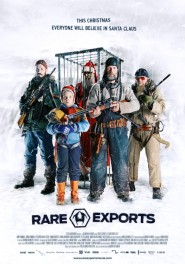
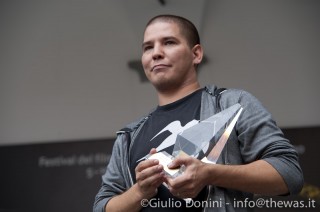

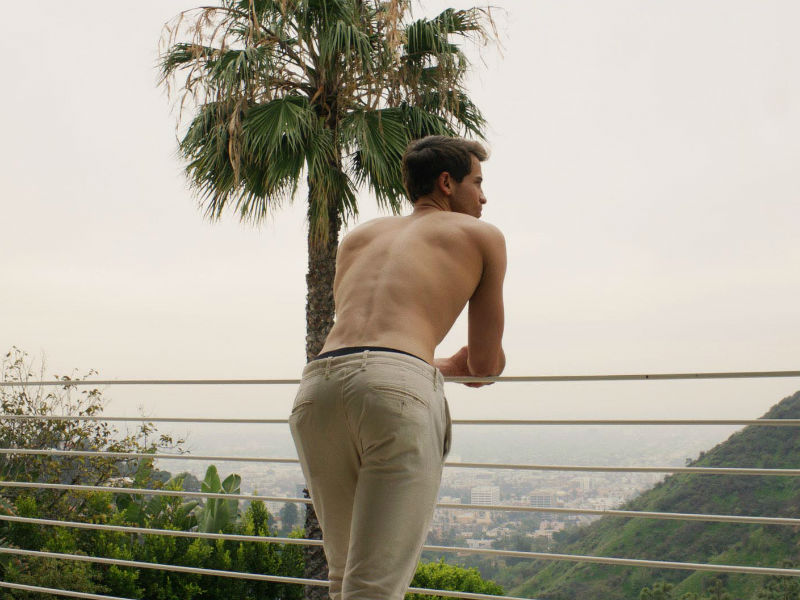
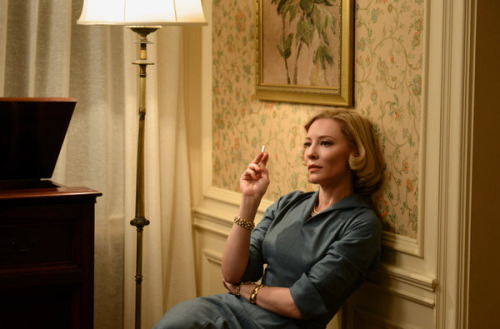
Why visitors still use to read news papers when in this technological
world everything is existing on web?
They want you to come to the salon on a regular basis so they tell you that you need
to get a haircut every four to six weeks, but it’s just
a way for them to make more money. Eventually this can cause hair thinning or
patches of bald spots. Refrain or limit the amount of heat applied
to your hair through the use of blow dryers, curling irons, straighteners,
etc.
Incredible points. Outstanding arguments. Keep up
the good work.
To relieve this problem, a revision rhinoplasty would have to be done.
Some of the popular cosmetic surgery procedures – notably the head lift – are popular attributable to aging skin circumstances accelerated by experience
of the sun. Plastic surgery procedures for the most part, are considered, major surgery.
You actually make it appear really easy along with your presentation however I find this matter to
be really one thing which I believe I’d by no means understand.
It seems too complex and extremely huge for me.
I am taking a look ahead on your subsequent publish, I’ll try to get the grasp of it!
Pretty component to content. I simply stumbled upon your web site and in accession capital to assert that
I acquire actually loved account your weblog posts.
Anyway I’ll be subscribing on your augment and even I
fulfillment you access persistently rapidly.
Howdy! I’m at work browsing your blog from my
new iphone! Just wanted to say I love reading through your blog and look
forward to all your posts! Carry on the excellent work!